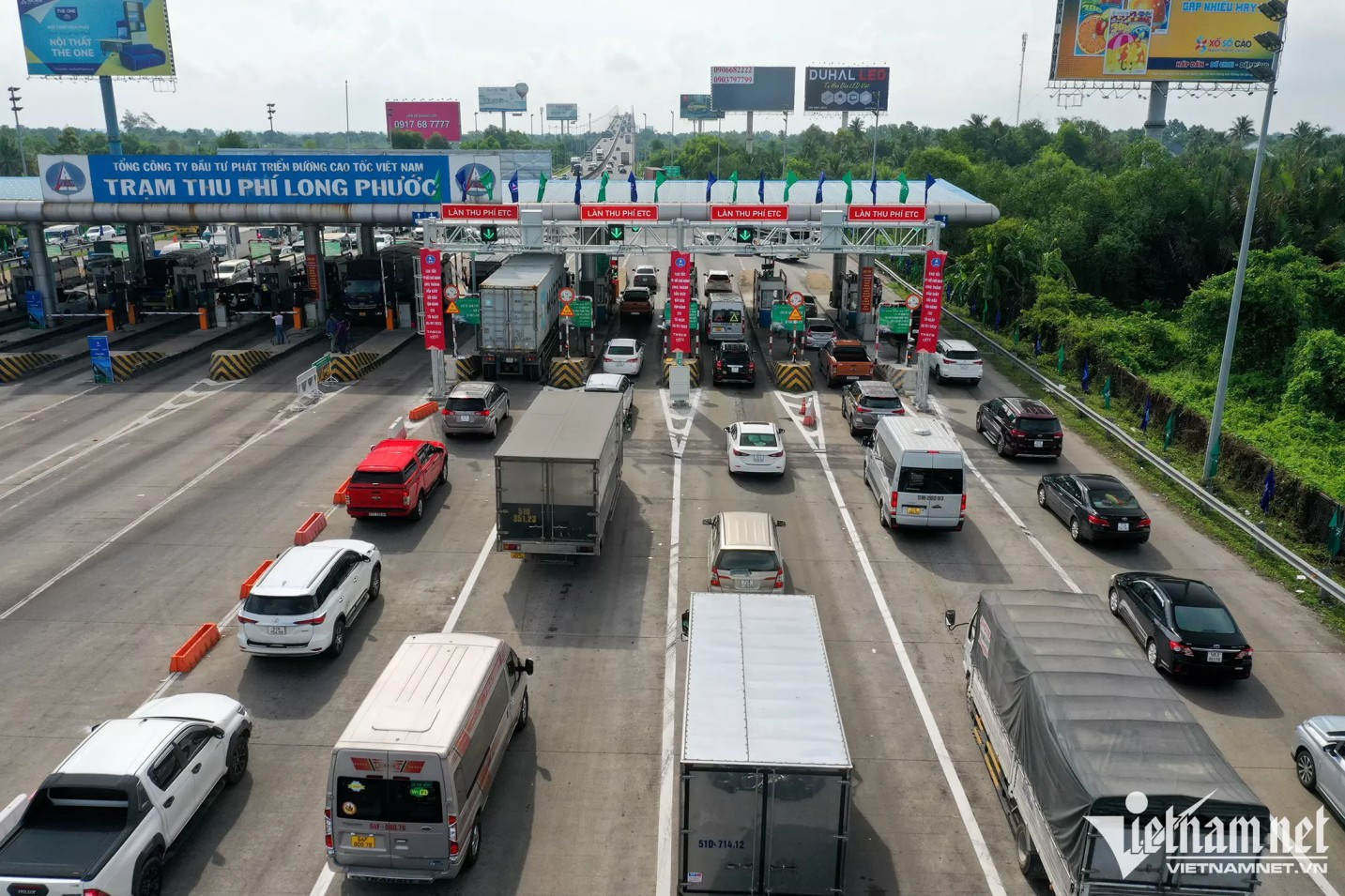
The non-stop toll collection has been implemented smoothly since August 1 on all highways.
ETC on National Assembly agenda
Two years ago, the Prime Minister on June 17, 2020 issued a decision on collecting fees from road use services under the electronic mode.
The decision said that toll booths where ETC systems had been installed had to deploy the ETC policy immediately, while stations which did not have ETC systems must install the systems and become operational by December 31, 2020.
This policy aimed to increase efficiency, transparency and modernization in toll collections, and ensure investors’ rights to collect fees as seen in contracts.
In addition, it ensured connections between toll collection systems; integration and provision of adequate and timely information to serve the objectives of state management; speeded up circulation through toll booths, reduced environmental pollution, saved social costs, limited the use of cash in the economy and created favorable conditions for users.
However, the policy has been delayed many times. Explaining the tardiness, Minister of Transport Nguyen Van The said at the National Assembly’s session on June 9 that the ministry had failed to apply ETC before December 31, 2020 as requested by the government.
He said ETC uses new technology, so technical problems arose during the implementation. The people’s habit of using cash was also a reason behind the delays. Twenty toll booths of the Vietnam Expressway Corporation (VEC), belonging to the Commission for the Management of State Capital at Enterprises, could not implement ETC as they did not have enough money, which was caused by problems in the restructuring process.
The government had to convene many meetings to discuss solutions and only in June could the problems be solved. VEC has signed contracts with credit institutions to implement the ETC plan.
On June 16, the National Assembly issued Resolution 62/2022, which said that problems related to toll collection stations and BOT toll collection must be solved in 2022.
ETC implementation
Later, Deputy Prime Minister Le Van Thanh chaired a meeting on ETC, where he again affirmed that ETC implementation is a must.
Many documents were released to instruct the implementation of ETC, from the National Assembly’s Standing Committee Resolution 437 dated October 21, 2017, to the Prime Minister’s Decision 19 dated June 17, 2020, Directive 06 dated February 27, 2018, and Directive 39 dated October 17, 2020.
The documents clearly showed the requirements, goals and tasks of agencies and local authorities in ETC deployment.
Thanh then assigned the Ministry of Transport (MOT) and localities to instruct investors to complete the installation of the remaining lanes by July 31, so that ETC could be implemented throughout the country on August 1.
On July 19, Thanh signed Directive 11 on speeding up the pasting of identification cards on cars to use the service under ETC.
The document once again asked to paste identification cards for all cars under management of agencies and units, stressing that toll payments in cash would no longer exist from August 1.
The directive clearly stipulated that heavy fines will be imposed on the owners of vehicles who violate regulations on ETC, causing traffic disorder, especially after August 1.
With the close supervision of the National Assembly, and the direction of the Prime Minister and Government, on August 1, the whole country begin implementing ETC at BOT stations on all highways.
On the first day of ETC application, problems arose which led to traffic jams at some toll booths, but in general, the toll collection has been going well with no serious incidents.
The non-stop electronic toll collection that replaces manual toll collection is "civilized and modern". It reduces society’s costs, contributes to environmental protection, and ensures transparency in fee collection.
Thu Hang